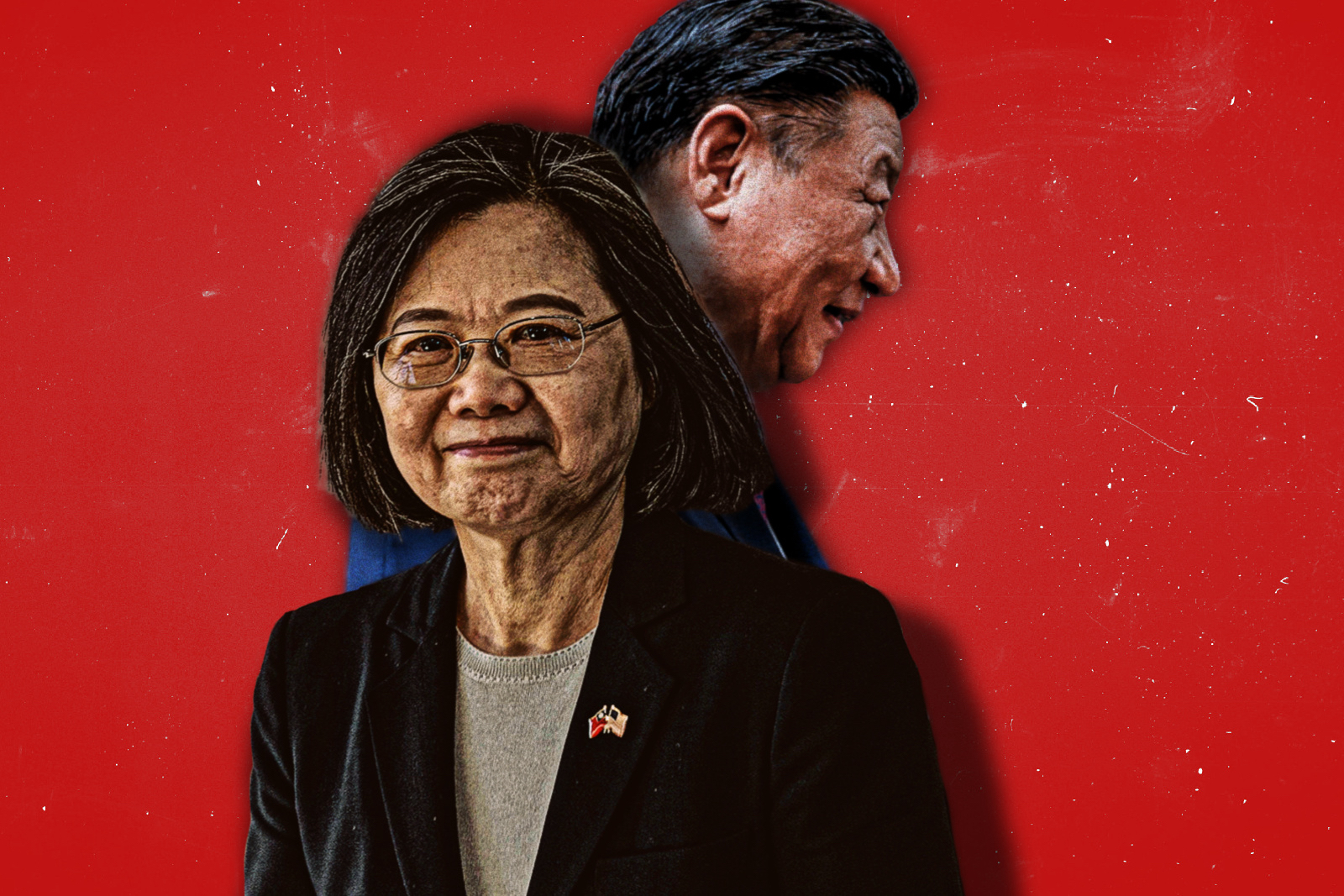
The Future of Taiwan Weighs Heavily in Upcoming Elections
Envision the archetypal schoolyard bully, leveraging size to intimidate the so-called “weaklings.” This metaphor resonates deeply with the current sentiment in Taiwan, a nation of over 23 million inhabitants, grappling with feelings of being “bullied” and “threatened.”
The protagonist in this geopolitical tension is, of course, China—Taiwan’s imposing neighbor, flexing its muscles in a display that reverberates far beyond a mere bilateral tiff. Taiwan’s strategic global significance belies its physical dimensions, and the outcome of its forthcoming elections is a matter of international import.
My recent journey to Taiwan was fortuitously timed, providing a chance to gauge the national psyche and readiness for a hypothetical military incursion.
Wars rage in Ukraine and the Middle East, making it all too easy to overlook the tensions simmering across the Taiwan Strait—a deceptively tranquil body of water that divides Taiwan from the Chinese mainland.
I posed a pointed question to Taiwan’s Deputy Foreign Minister, Chun Lee, who, amidst a demanding schedule, engaged with a contingent of international journalists. On a scale from 1 to 10—where 1 represents impossibility and 10 inevitability—I inquired about the odds of a Chinese military assault.
Lee initially remarked on the complexity of providing a simple answer to such a nuanced inquiry. After contemplation, he assessed the current likelihood as falling between 0 and 4. Yet, he suggested that this could shift upwards to “at least 4” within a few years.
This prognosis is significant, offering a measure of the perceived Chinese threat, which has recently captured the global spotlight.
When pressed on potential flashpoints for such an invasion, Lee cited 2027 as a crucial year—a centennial for the Chinese Communist Party, potentially marking a time when China might feel emboldened for more assertive action.
This scenario poses a monumental risk, one that could potentially relegate the conflicts in Ukraine and the Middle East to lesser global crises, should it draw in the superpowers of the United States and China into direct military conflict.
The Taiwanese government, represented by figures like Foreign Minister Joseph Wu, whom we encountered on our fact-finding mission, is actively seeking global support in anticipation of further escalations in cross-strait tensions.
In a landscape where China’s diplomatic influence has progressively isolated Taiwan, reducing its formal allies to a mere handful, the deputy minister underscored the imperative for democratic nations to collaborate in safeguarding their shared values.
Despite China’s economic and military juggernaut—its economy 20 times larger, a naval force unparalleled, and a military might tenfold that of Taiwan—there is an underdog’s trump card in Taiwan’s pocket: its semiconductor industry. It’s an industry that quite literally powers our world.
It’s no overstatement that the microchips in our smartphones, laptops, and other devices trace their origins to Taiwan, and this is precisely why China might covet the island it considers a stray province.
Taiwan is responsible for upwards of 90% of the globe’s most advanced microchips and 60% of all semiconductors. Any disruption to Taiwan’s semiconductor production could send shockwaves through the global economic system.
Our explorations led us to Taiwan’s equivalent of Silicon Valley, where we witnessed the staggering extent of technological innovation—a testament to the country’s industrious spirit, embodied by companies like Delta Electronics, which innovates across a spectrum from veterinary equipment to autonomous vehicles.
Long past are the days when “Made in Taiwan” evoked images of inexpensive products. Today, Taiwan stands as a vanguard of high-tech industry and economic prowess.
Amid the mounting military pressure from China, there’s talk of a “silicon shield”—a metaphorical defense against aggression, leveraging Taiwan’s technological clout. However, officials we met with cautioned against mistaking this economic advantage for an actual bulwark against the military threat.
The shadow of China looms persistently over Taiwanese discourse. Issues of Taiwan’s marginalization from the international community persist—topics I’ve chronicled for over a decade. It is striking that a nation so economically vital and a paragon of democratic transformation remains excluded from key global institutions due to China’s unwavering “one China” principle.
In the forthcoming COP28 climate summit in Dubai, Taiwan will, once again, be conspicuously absent, a testament to China’s sustained diplomatic pressure.
Comparative reflections on the Ukrainian struggle for self-definition against an unwelcome neighbor were inevitable in discussions. The Taiwanese, like the Ukrainians, yearn to affirm their sovereignty.
Taiwan is marshaling its defenses: conscription periods have been extended, and President Tsai Ing-wen has announced measures to reinforce national security. Concurrently, President Biden has reiterated America’s pledge to support Taiwan, a reassurance that resonates with the Taiwanese people.
As election billboards populate Taipei, the cross-strait relationship is a central theme in the forthcoming elections, with a palpable consensus that more must be done to shore up Taiwan’s defenses.
No one in Taiwan—or elsewhere—wishes to see another conflict erupt. Yet the optimism I encountered in Taipei’s streets, where hope outweighs despair, was not blind to the deteriorating posture of China toward their nation.
The Taiwanese foreign minister, in a plush hotel setting, conveyed a somber outlook when prompted about Taiwan’s future, acknowledging “the threat (from China) is real,” he noted, adding, “we face a big and hostile neighbor and Taiwan is not a big and powerful country.”
For Taiwan, the stakes are high, and the island stands on the frontline against authoritarian expansion. The island’s resolve is palpable, and its trajectory—from once derided to now revered—is a narrative of tenacity.
In every mobile device cradled in our palms, we hold a piece of this island—a testament to the indomitable spirit of a nation that once faced derision but now commands respect. The tacit warning is unambiguous: to underestimate Taiwan is to underestimate the resolve of its people and the resilience of its democracy.

